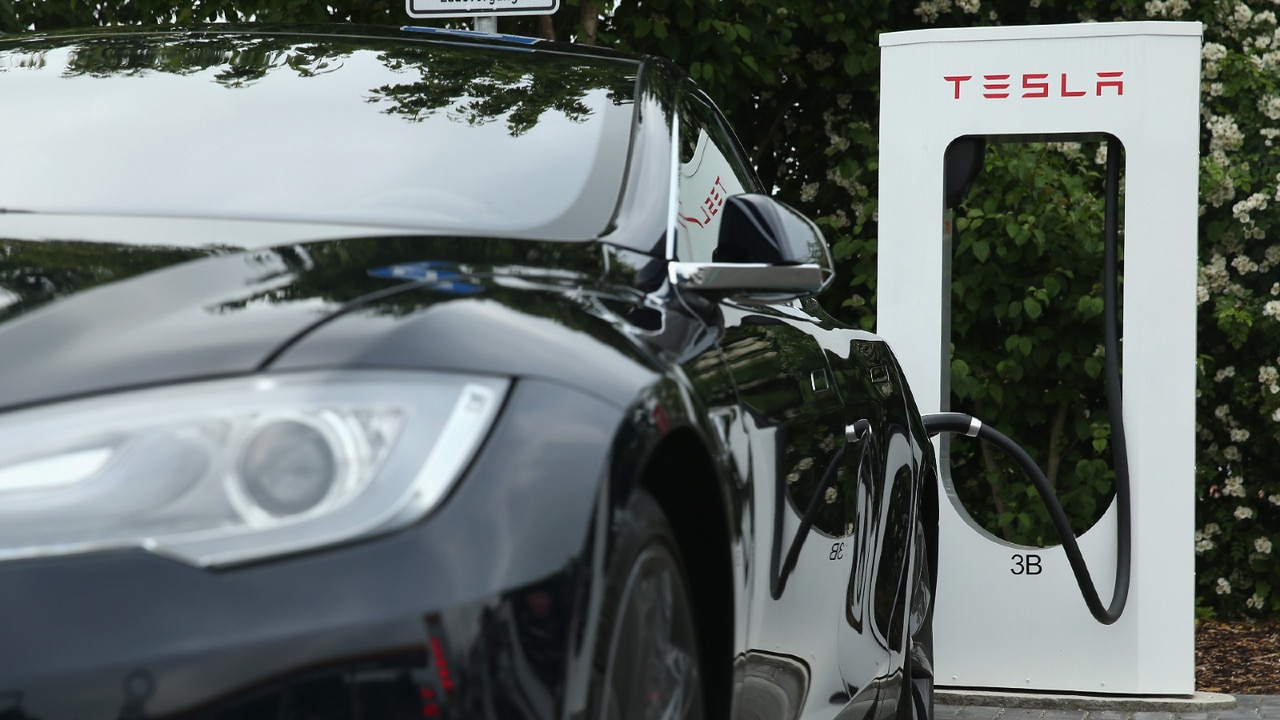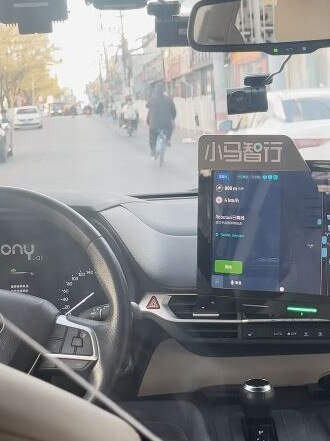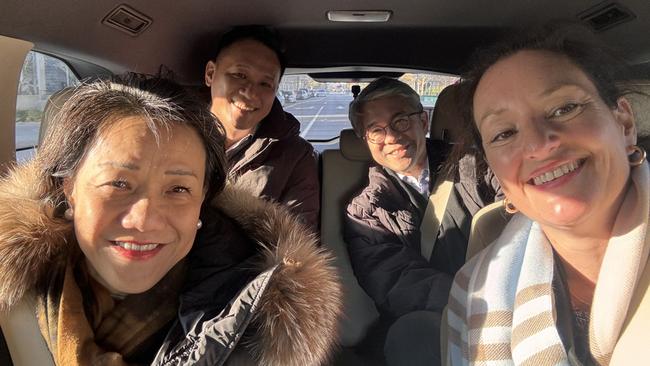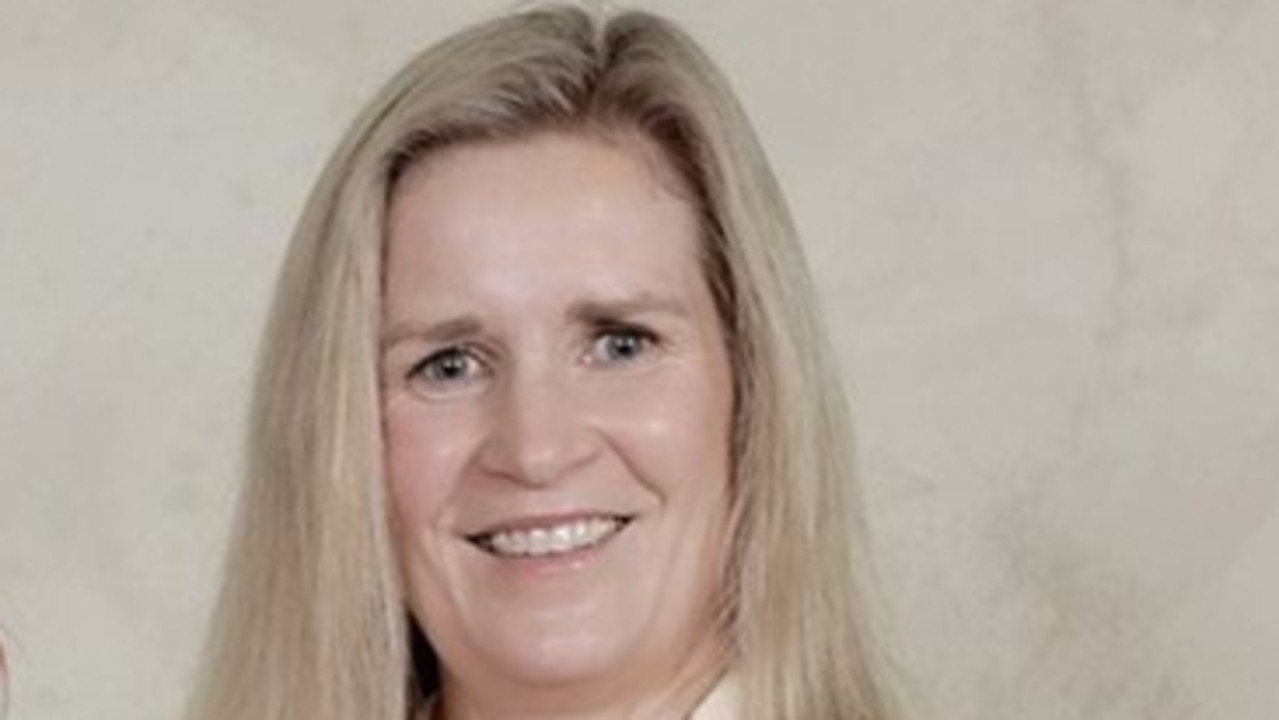Aussie robocabs: Why Brisbane Olympics deadline too late
Driverless taxis are already operating in several countries but experts have warned Australia is trailing the world by 15 years in adopting the new technology.

National
Don't miss out on the headlines from National. Followed categories will be added to My News.
Driverless taxis could hit Australian streets in time for the 2032 Olympics, but experts warn we are trailing the world by 15 years in adopting the new technology.
One of Australia’s largest taxi companies, 13cabs, says it’s laying the groundwork for self-driving vehicles to become a reality as it begins discussions with local, state, and federal governments.
Robocabs are already operating in several countries, and are being trialled in others, including the US, China, the UK, Singapore, Japan, South Korea, and the United Arab Emirates.
Chief Operating Officer Olivia Barry said while the project is still in its infancy, she envisions the robocabs to operate in major Australian cities within the next decade.
“We would love to be ready to offer the service for the Brisbane Olympics in 2032,” she said.
“To do that, we would need to operate pilot projects beforehand where 13robocabs worked in limited areas for limited periods.
“I look forward to the day when we see a 13robocab on Collins Street in Melbourne, travelling on Sydney’s Parramatta Road, or cruising along Brisbane’s Pacific Motorway.”


Self-driving taxis have gained momentum globally over the past few years — and issues of safety remain a topic of debate.
The global autonomous vehicle market, which includes self-driving taxis, is projected to be worth up to $112 billion by 2030.
Waymo operates driverless cabs in Phoenix, Arizona, while Dubai is pushing to make 25 per cent of all transport autonomous in the next five years.
However, while driverless cars are rapidly expanding in several countries, Australian authorities remain unconvinced of their safety.
Current data shows self-driving cars experience 5.7 crashes per million kilometers driven, more than double the 2.5 crashes per million kilometers for conventional cars.
However, improvements are emerging — Waymo’s self-driving cars have shown an 88 per cent reduction in property damage claims and a 92 per cent decrease in bodily injury claims compared to human-driven vehicles.
Motoring expert and chief executive officer for Car Mechanical Services Raffy Sgroi said while this is the “way of the future”, Australia is lagging severely behind.

She said the country faces significant challenges in preparing for autonomous vehicles, from fragmented state laws and poor infrastructure to unresolved issues including questions of liability, insurance and privacy.
“Australia is at least 15 years behind other countries when it comes to technological advancements and adequate planning in terms of clear legislation, infrastructure and even servicing within the automotive industry,” she said.
“There’s just not enough incentive for investors to ‘play’ within Australia. And unless the government installs the infrastructure and legislation needed and thoroughly considers matters such as adequate servicing of these vehicles, it’s likely to be some time before Australians can enjoy the full benefits of driverless vehicles.”
However, despite the push for automation, Ms Barry insisted that the new technology won’t see human drivers replaced.
“Professional drivers are the backbone of 13cabs,” she said. “Autonomous taxis will work alongside them, expanding transport options and making our network more flexible.”
More Coverage
Originally published as Aussie robocabs: Why Brisbane Olympics deadline too late





